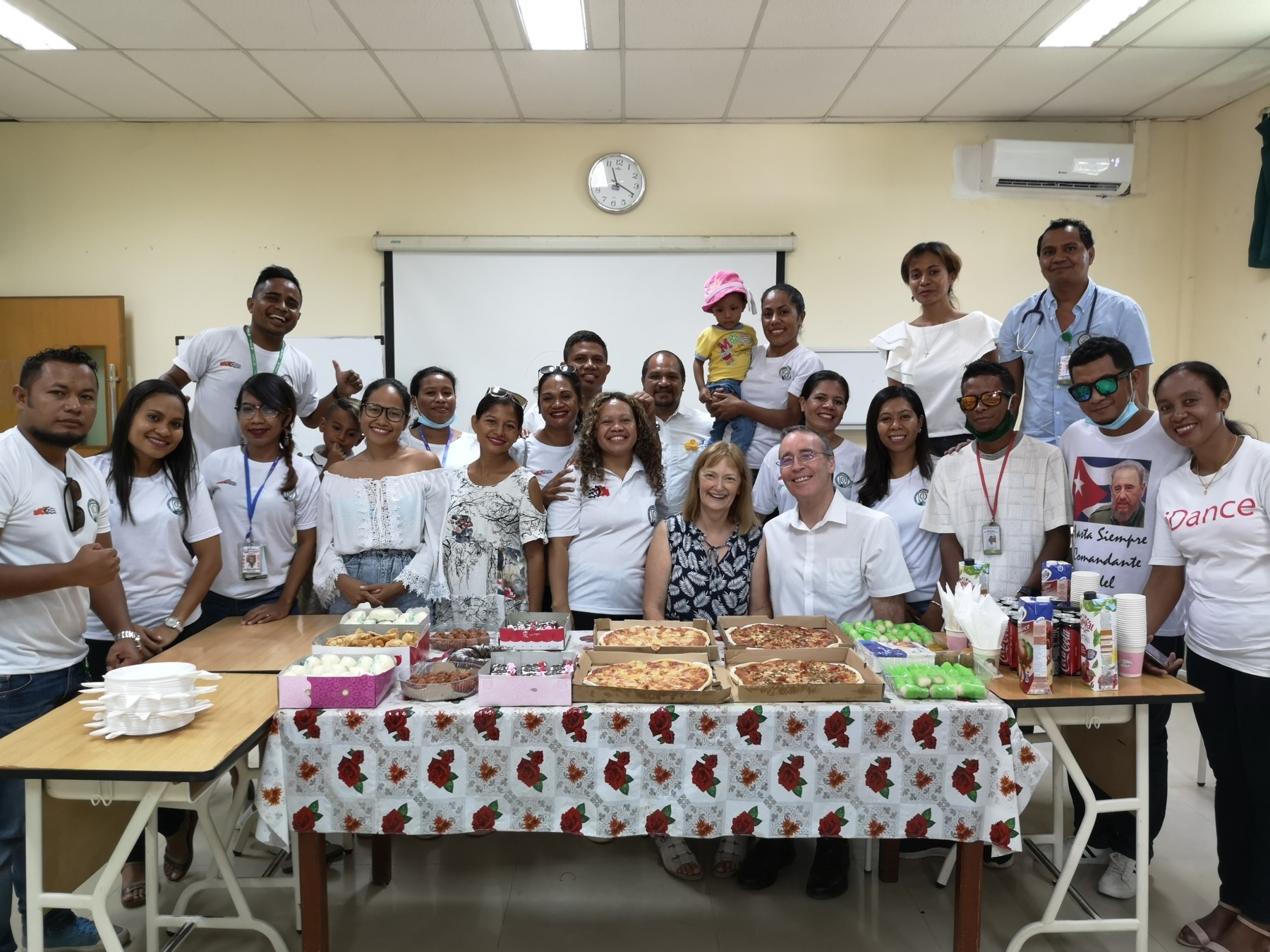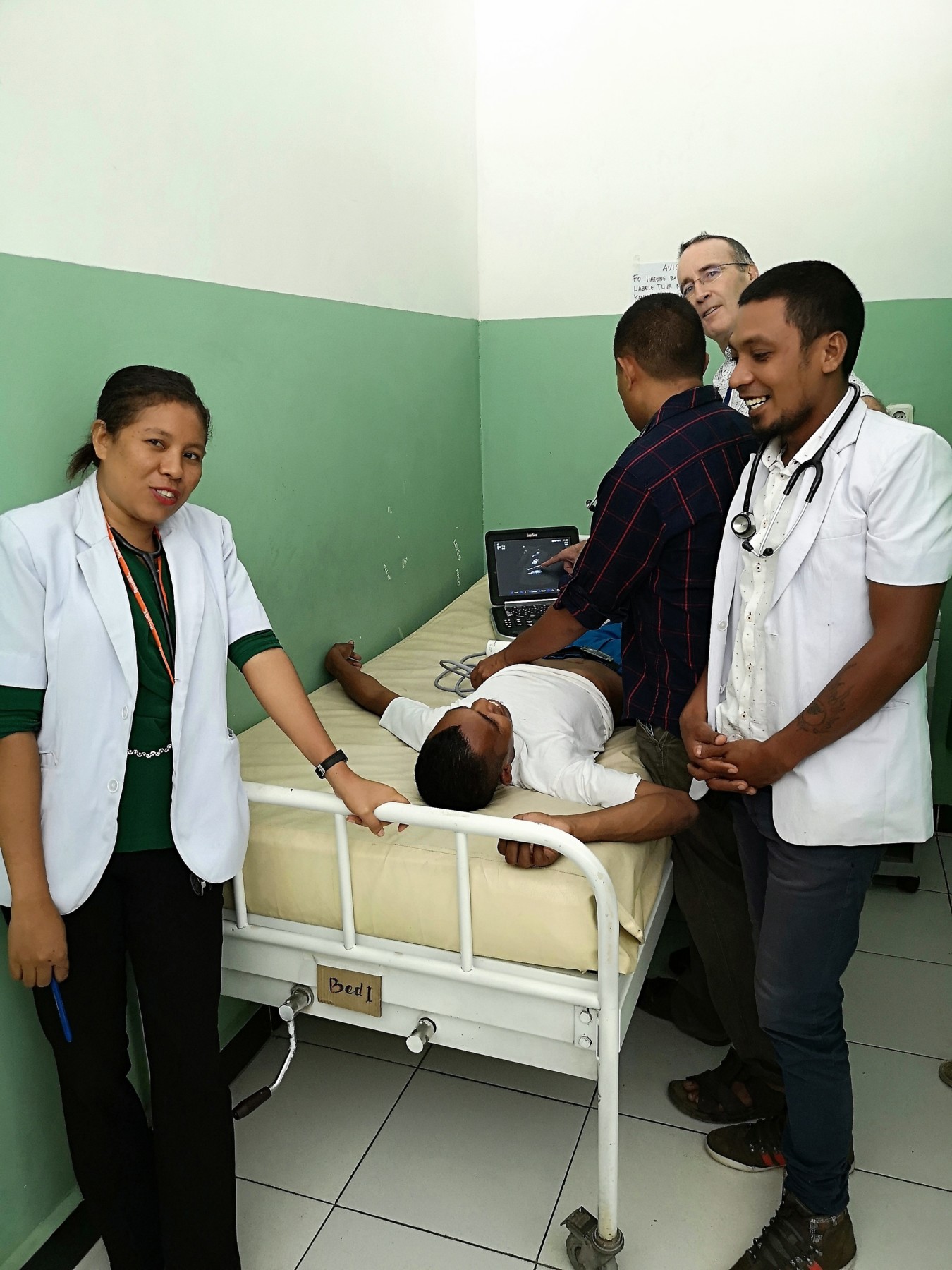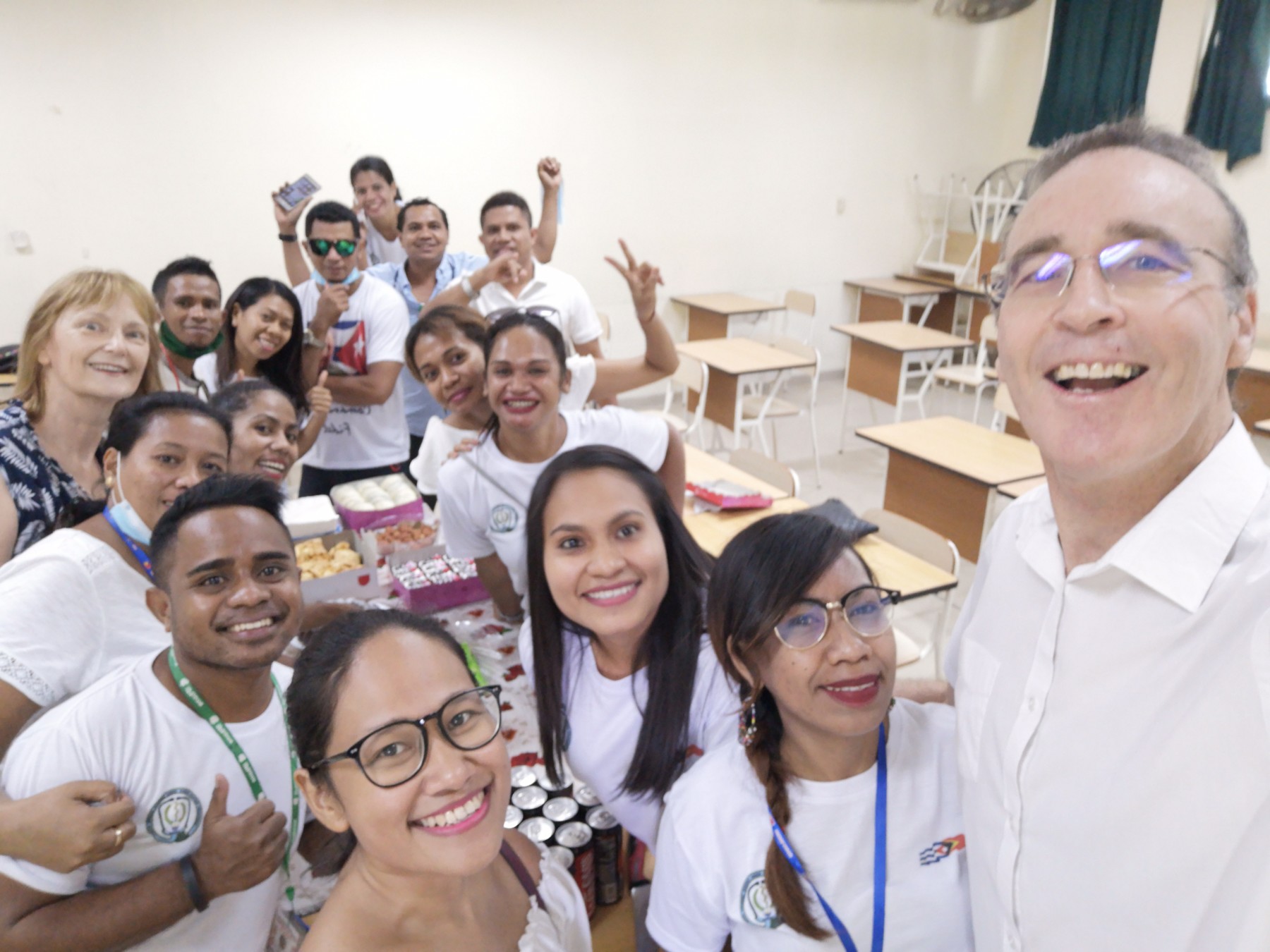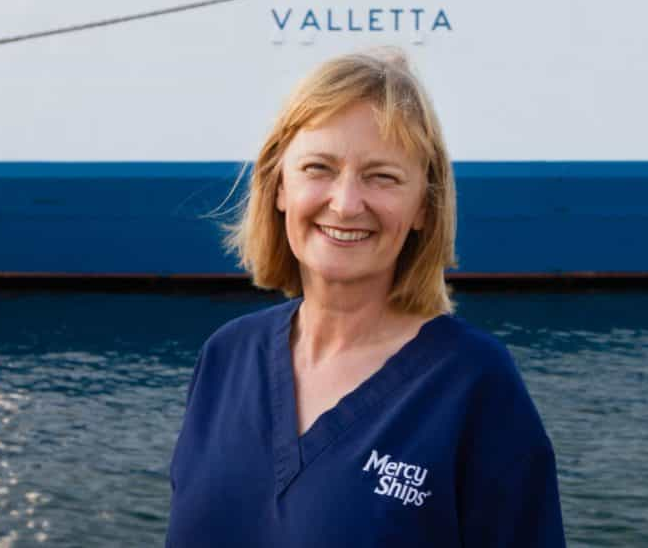Greetings from Darwin, where the 2 weeks of quarantine has afforded the opportunity to reflect on 22 months in Timor L’este.
One of the unexpected bonuses of working overseas, is the opportunity to intersect with some exceptional people – creative, innovative, resilient and persistent people, who won’t ever receive the accolades of peace prizes, or formal recognition financially or in any other way, but they make an huge impact on their adopted country and have the Applause of Heaven.
Dr Linsday ‘scan training’ our Doctors
We were privileged to work alongside many such people at Maluk Timor. This is an unique organisation having a focus on sustainable projects with the ultimate goal of Timorese leadership.
A new venture often results in surprising discoveries – and thus it was with us: eg.
- Hot dry weather can be tolerated, but humidity drains the bones!
- However, the joy of a wet season downpour greatly outweighs the dust of the dry season!
Kindness is a beautiful character trait – and melts the heart.
- Unexpected acts of kindness both from strangers and friends would lift our day.
Roll play giggles
Lesson – Be Kind – You do not know what challenges the day has brought.
“The relationship is more important than the sale” (aka Toyota TV advertisement)
- The book “African Friends and Money Matters” (David Maranz) contrasts the way Africans regard time, money & relationships, with the Western Culture approach. It is helpful for anyone attempting cross-cultural work, including understanding Timorese culture. Many of the difficulties we experienced, can be explained by the very different perspectives on how one should live.
- In Western culture, sharing of money & possessions is usually restricted to one’s immediate family, but sharing of knowledge is an everyday occurrence.
- However, in non-western cultures, knowledge is power, shared with a select few; whilst money and possessions are thought to be fluid between extended family and close friends.
- We discovered that real learning only really began, when relationships were established and they trusted that we, as older, experienced Drs, wanted to share knowledge without obligations on them.
- We discovered this by accident in our first year. As the group was small, we could invite them to our home for meals, which we did early in the course. Their subsequent academic progress was much better, despite their weaker starting point, than our second cohort, who were more intellectually able.
- The larger second group wasn’t possible to entertain in our small flat. Some months passed before we considered an alternative way of socialising – 12 at a time, at a restaurant. The first of these parties was just before the COVID-19 lock-down, and there has been no opportunity for another. Without forging the deeper relationships, we believe they were more resistant to embracing new information, or changing their habits. One even declared this openly when he said: “We Timorese will smile and say ‘Yes”, but when you go, we will do what we have always done”
- We ponder the legacy we hoped to leave.

The cohort celebrating together
Lessons – Seize the day. Put relationships before programs!
With the advent of COVID-19, Maluk Timor’s incredibly creative team put together educational presentations for dissemination to all the districts of Timor L’este.
- Our Drs were deployed to teach about COVID-19 at all the Community Health Centres.
- This was a chance for them to practice the skills of Teaching, Training and being Leaders in the Health Community.
- They were forced to rise to the occasion, being thrust unexpectedly into the limelight.
- For some, it was a significant boost and confidence builder. We hope they were given a vision for the future when they could be Spokespersons & Educators of healthcare professionals.
- Serendipitously, it may have achieved far more than we hoped.
Lesson – Unpredicted adversity & forced changes can hasten progress in unforeseen ways.
The Drs studied Medicine in Spanish, which became their 5th language.
Their local language (Tetun) has very few words that can be used for academic medical discussions making teaching in Tetun nigh to impossible, because the necessary lexicon just does not exist.
- Much effort was expended teaching English, and the Drs were, overall, keen to learn, but it was still hugely difficult for them in learn in their 6th language.
- It was hard for us too, to prepare lessons that were relevant to their context, up-to-date in content, yet simple enough for them to understand.
The Drs had been taught a formulaic approach to diagnosis, rather than analytical, using critical thinking and reasoning.
- Our challenge was to convince them of the need to expand their knowledge, and that there were different ways to approach a medical problem.
- One of the 24 Drs approached Linds in the first week, saying he recognised he had a lot to learn – this was music to our ears!
- I guess none of us like to admit ignorance, and there is safety in following a pattern.
Lesson – in order to teach, you must understand the learners starting point.
So overall, a great privilege despite many challenges.





